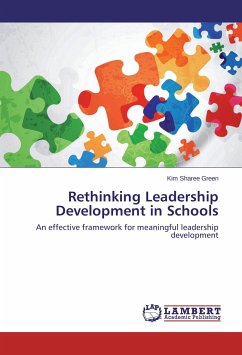As a result of an evaluation of the structure of a Leadership Development Programme against existing learning frameworks such as Problem-Based Learning Framework (Vygotsky, 1978, Leontiev, 1959), Experiential Learning Theory (Kolb, 1984) and Action Learning (Lewin, 1946, Torbert, 2004) the author presents evidence that three elements are imperative to the success of an effective Leadership Development Programme: rehearsal and practice, collaboration and co-construction, and reflection. In addition to presenting an innovative framework for effective leadership development in schools, the author discusses how the entrenched, protracted effects of a Leadership Development Programme affects the leader's capabilities to undertake their roles, responsibilities, job assignments and builds relationships between participants. Consequently, the outcomes of establishing a Leadership Development Programme in schools influences strategic leadership, the authenticity of distributed leadership,the scope of leadership influence and contributes to succession planning. In culmination the author presents a discussion guide for teachers, school principals and senior school leaders.
Bitte wählen Sie Ihr Anliegen aus.
Rechnungen
Retourenschein anfordern
Bestellstatus
Storno








